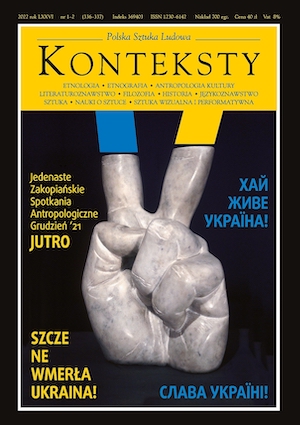Cras leges. Pocztowe jutro
Cras leges
Author(s): Wojciech MicheraSubject(s): History, Language and Literature Studies, Essay|Book Review |Scientific Life
Published by: Instytut Sztuki Polskiej Akademii Nauk
Keywords: post;letter;postcard;anthropology;France
Summary/Abstract: The author of the article – using the example of France at the turn of the nineteenth century – discusses the consequences of the great social reform from the mid-nineteenth century, i.e. the Rowland Hill postal reform in England and other countries. Due to the unification and lowering of tariffs (The Uniform Penny Post) traffic in the postal network reached the level of frenzy; by way of example, in Paris mail had to be delivered to addressees eight times a day. Nonetheless, researchers dealing with visual culture (e.g. Paul Virilio) focus on the category of “speed” and mistakenly treat the postal system of the era of Modernism as a relic of little interest and not as a key institution of the “modern” state. Meanwhile, the totality of the postal network during the second half of the nineteenth century redefined social relations, private and economic life, as well as the “discourse of power”. Taking those facts into consideration the author (referring to, i.a. Postcard by Jacques Derrida) considers the social consequences of the fact that the essential factor within the functioning of this network was the delay “co-efficient”: letters sent “today” reached the addressee “tomorrow”. Moreover, all postcards were social media of sorts and every postcard – an element of the constant oscillation of correspondence. In the social dimension, therefore, the postal network constituted an enormous, rhythmicised structure (here the author’s theoretical inspiration is the Henri Lefebvre rhythmanalysis conception). Finally, the article considers the dialectical relation between the figures of the flâneur and the facteur (postman).
Journal: Konteksty
- Issue Year: 336/2022
- Issue No: 1-2
- Page Range: 8-16
- Page Count: 9
- Language: Polish

